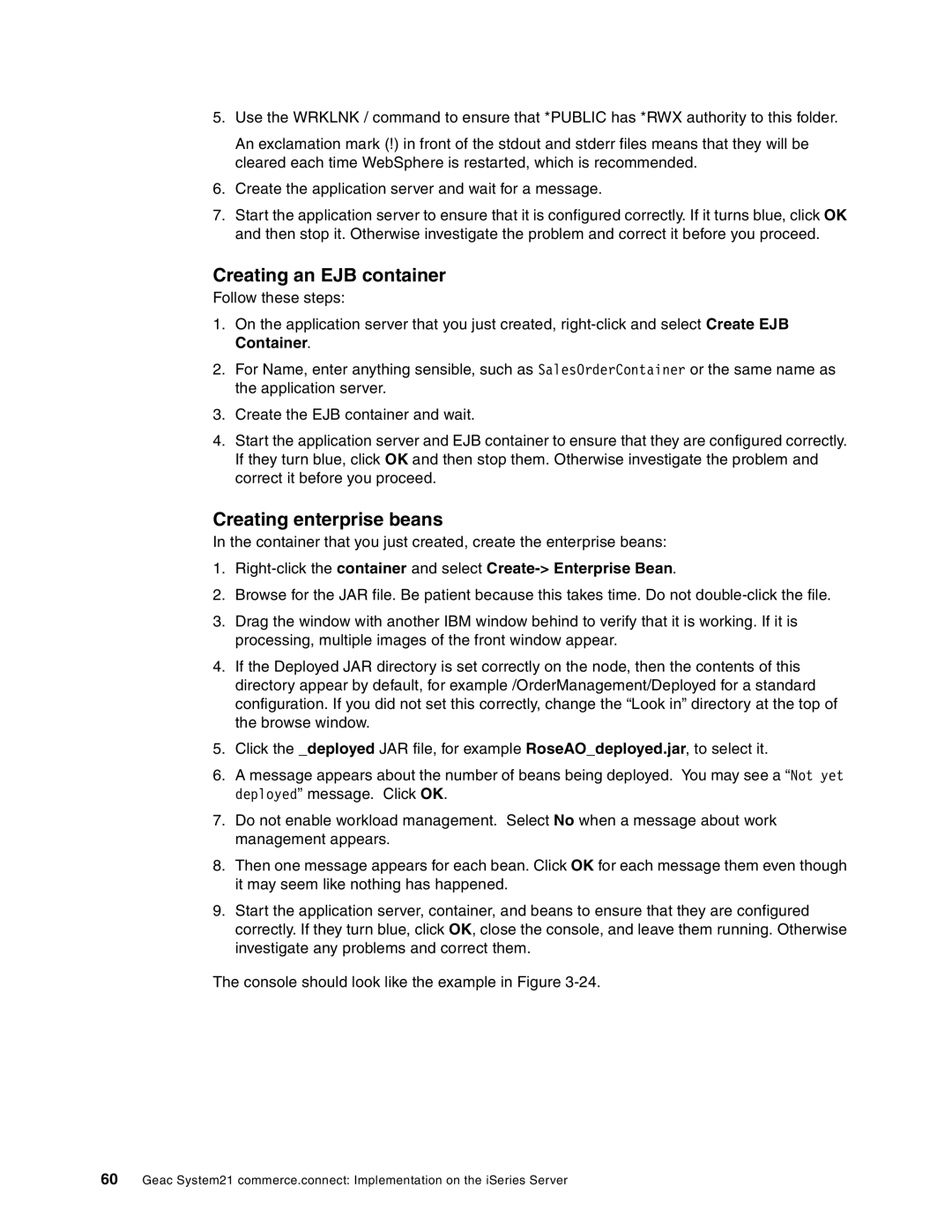5.Use the WRKLNK / command to ensure that *PUBLIC has *RWX authority to this folder.
An exclamation mark (!) in front of the stdout and stderr files means that they will be cleared each time WebSphere is restarted, which is recommended.
6.Create the application server and wait for a message.
7.Start the application server to ensure that it is configured correctly. If it turns blue, click OK and then stop it. Otherwise investigate the problem and correct it before you proceed.
Creating an EJB container
Follow these steps:
1.On the application server that you just created,
2.For Name, enter anything sensible, such as SalesOrderContainer or the same name as the application server.
3.Create the EJB container and wait.
4.Start the application server and EJB container to ensure that they are configured correctly. If they turn blue, click OK and then stop them. Otherwise investigate the problem and correct it before you proceed.
Creating enterprise beans
In the container that you just created, create the enterprise beans:
1.
2.Browse for the JAR file. Be patient because this takes time. Do not
3.Drag the window with another IBM window behind to verify that it is working. If it is processing, multiple images of the front window appear.
4.If the Deployed JAR directory is set correctly on the node, then the contents of this directory appear by default, for example /OrderManagement/Deployed for a standard configuration. If you did not set this correctly, change the “Look in” directory at the top of the browse window.
5.Click the _deployed JAR file, for example RoseAO_deployed.jar, to select it.
6.A message appears about the number of beans being deployed. You may see a “Not yet deployed” message. Click OK.
7.Do not enable workload management. Select No when a message about work management appears.
8.Then one message appears for each bean. Click OK for each message them even though it may seem like nothing has happened.
9.Start the application server, container, and beans to ensure that they are configured correctly. If they turn blue, click OK, close the console, and leave them running. Otherwise investigate any problems and correct them.
The console should look like the example in Figure
60Geac System21 commerce.connect: Implementation on the iSeries Server
